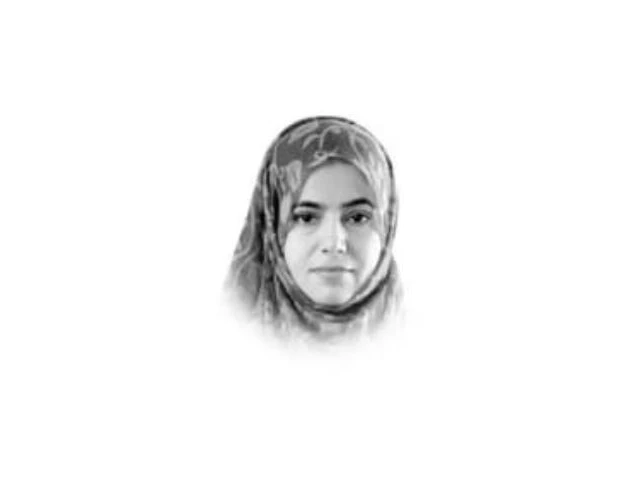Why women still die for choice
.

In the barren village of Dagari in Balochistan's Nasirabad district, a young couple dared to dream. Bano Satakzai and Ehsan Samalani chose each other as life partners, a right even religion grants. But tragically, tradition denied them that right. Their voices were brutally silenced in cold blood.
They were killed in what is grotesquely called an "honour killing". Their only crime was love, the audacity to assert autonomy over their own lives. But in parts of Pakistan where tradition outweighs the law and family pride is considered more sacred than human life, such defiance is met not with dialogue but with bullets and blades.
The murder of Bano and Ehsan is not an anomaly. It is yet another entry in the long, blood-soaked ledger of honour-based violence in Pakistan. According to the Human Rights Commission of Pakistan, hundreds are killed every year, the overwhelming majority of them women, in the name of honour. The term itself is a moral contradiction. There is no honour in murder.
What we are witnessing is not just violence. It is the enforcement of patriarchal control disguised as tradition. It is a culture that prizes silence over self-expression, obedience over autonomy and conformity over consent. More often than not, those who commit such crimes act with impunity, protected by community complicity and judicial weakness.
Remember the infamous 2016 killing of Qandeel Baloch in the same region? She was strangled by her brother for allegedly bringing "dishonour" to the family through her online presence. Qandeel's death should have been a turning point. But once the outrage faded, the status quo prevailed. Women continued to die. The traditions endured.
In many parts of Pakistan, from Balochistan to Sindh, from southern Punjab to tribal Khyber-Pakhtunkhwa, a woman's decision to marry someone of her choosing is viewed as rebellion. The law may recognise her right under Article 35 of the Constitution and the Muslim Family Laws Ordinance, but societal norms frequently override these statutory protections.
Those who even express the desire to choose their partner are labelled as characterless. Others who bravely leave home and marry by their own will in court are stigmatised. The label they are given is not merely an insult; it is a dangerous stigma that places their lives at risk. Entire communities often unite behind the belief that such women must be punished, their blood seen as a necessary cleansing of the family's so-called honour.
Even when women survive this scrutiny and enter marriages of their choice, the threats do not end. Their character continues to be questioned. Some are subjected to invasive, unscientific and deeply misogynistic "virginity tests", as though a woman's worth can be measured by a drop of blood. This fixation on "purity" is a grotesque extension of a society that fears female agency.
This obsession with controlling women's choices, what they wear, where they go, whom they love, is not just regressive. It is dehumanising. It poisons the collective soul of the nation. While the world progresses toward gender equality and personal liberty, Pakistan continues to make global headlines for the worst reasons. Girls are killed by brothers, cousins, uncles and sometimes even parents — all in the name of an honour that never existed.
The cost of defiance is often a girl's life. And for those who survive, the punishment is lifelong. They face social ostracisation, threats and relentless emotional abuse. We are raising daughters who are not free to dream, and sons who are taught that control is their birthright.
What is perhaps most disturbing is the silence of those who should be the loudest — the state, religious leaders, law enforcement and civil society.
Bano and Ehsan must not be remembered as just another sad tale from a forgotten village. If we truly want to honour our daughters, we must fight for their right to choose, to love and to live.
Because there is no honour in killing, there never was.















COMMENTS (2)
Comments are moderated and generally will be posted if they are on-topic and not abusive.
For more information, please see our Comments FAQ